How do I Spend my Day? (Time) Class 1 Notes Maths
| Table of contents |

|
| What is Time? |

|
| Morning |

|
| Afternoon |

|
| Evening |

|
| Night |

|
| Clock |

|
| Seasons |

|
| Match the following |

|
What is Time?
- Do you think why we wake up in the morning, go to school or play with friends during the day, and sleep at night?
- It's all because of time!
- Time helps us understand when to do different activities throughout the day.
- So, let's learn more about time and the different activities we do throughout the day!
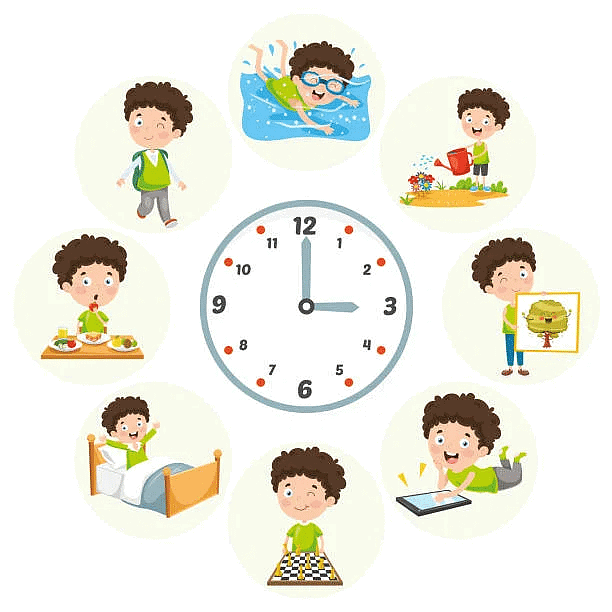
Morning
- In the morning, we wake up and get ready for the day.
- We brush our teeth, take a bath, and have breakfast.
- We do these activities in the morning because it's the beginning of the day, and we need to prepare ourselves for what's to come.
- After breakfast, we go to school or do other activities like playing with friends or helping our parents. We do these things during the daytime when the sun is up and it's bright outside.
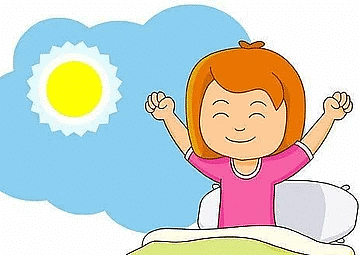 We wake up in the morning
We wake up in the morning
Afternoon
- In the afternoon, we take a nap or have lunch.
- We do these activities in the afternoon because it's the time when we feel a little tired and need a break.
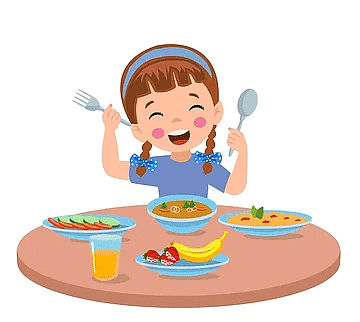 We have lunch in the Afternoon
We have lunch in the Afternoon
Evening
- As the day goes on, we might do other activities like homework, playing sports or games, or watching TV.
- We do these things during the evening, which is when the sun is setting, and the day is coming to an end.
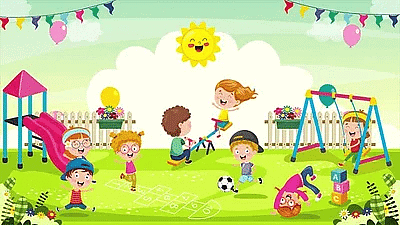 We play in the Evening
We play in the Evening
Night
- Finally, at night, we get ready for bed. We brush our teeth, change into our night suits, and go to sleep.
- We do these activities at night because it's the end of the day, and we need to rest and recharge for the next day.
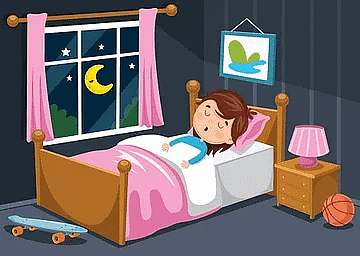 We sleep at Night
We sleep at Night
So, different activities are done at different times of the day, which helps us understand the concept of time.
Activities take Shorter or Longer Time
- Time is something we use to know how long it takes to do different things.
- Some things take a short time, like brushing our teeth, while other things take a long time, like eating a meal.
- When we brush our teeth, it doesn't take us very long, maybe only a minute or two.
- But when we eat a meal, it can take us a longer time, maybe around 20-30 minutes.
- Similarly, taking a bath or shower can take us a longer time, around 10-15 minutes, while brushing our teeth only takes us a short time.
So, time helps us understand how long it takes to do different things.
Clock
We can also use clocks and watches to keep track of time and ensure that we do all our activities on time.
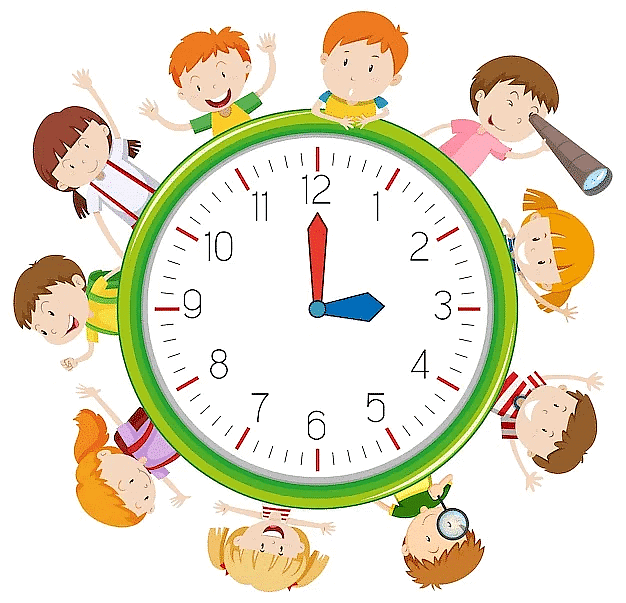
- This is a clock.
- It tells us the time.
- The face of the clock is called its dial.
How many hands do we see on this clock?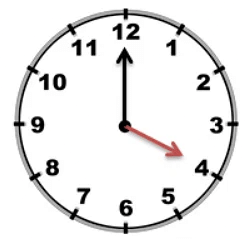
We see two hands on this clock. The long hand is called the minute hand and the short hand is called the hour hand.
How many numbers do we see on this clock?
We see numbers from 1 to 12 on the face of a clock.
Activity
Observe the movement of the hour hand and minute hand and find which hand move faster.
Observation: The minute hand moves faster than the hour hand.
Note:
- When the minute hand points to the number 12 and the hour hand points to any number on the face ofa clock, the time is read as 0’ clock. Example: 7 o’clock, 4 o’ clock etc.
- 1 hour = 60 minutes.
A clock has 12 numbers which stand for hours and minutes.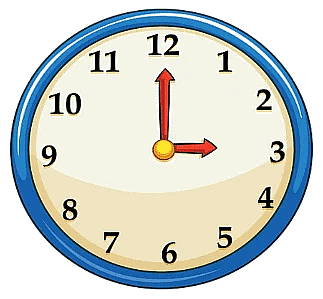
The long hand of the clock tells us the minutes. The shorthand of the clock tells us the hours.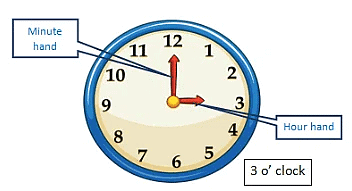
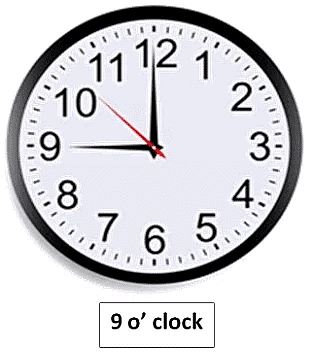
Seasons
- Time keeps changing, and so does the world around us! As the months go by, we feel different kinds of weather—sometimes it's hot, sometimes it's cold, and sometimes it rains.
- These changes happen because of the seasons!
- Each season brings something special.
There are four seasons:
1. Summer Season: It is hot, and the sun shines brightly. People eat ice cream and play outside.
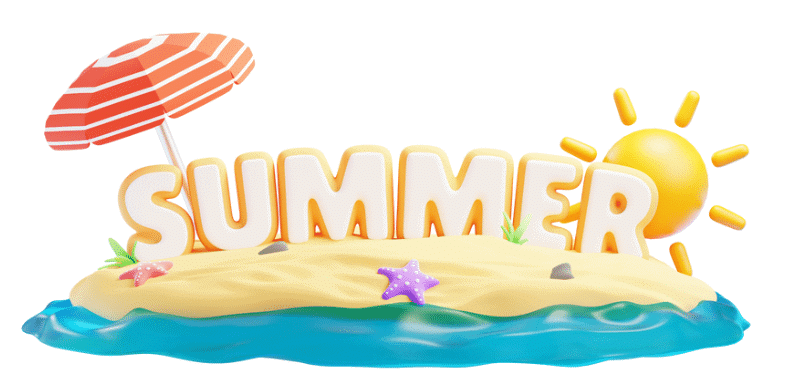
2. Rainy Season: The rain falls, and we use umbrellas and raincoats. Frogs and flowers love the rain!
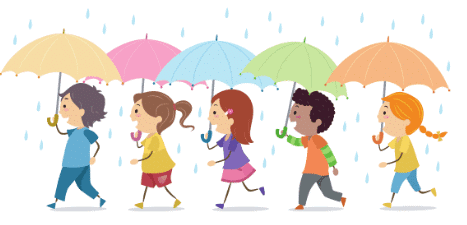
3. Winter Season: It is cold, and we wear warm clothes. Some places even have snow!
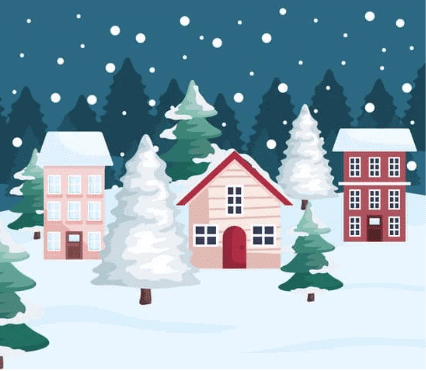
4. Spring Season: The weather is nice, and flowers bloom everywhere. Butterflies fly around.
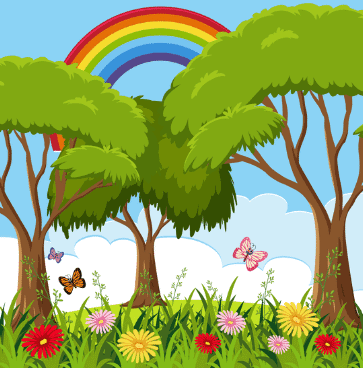
Match the following
Match the following objects with the suitable season:
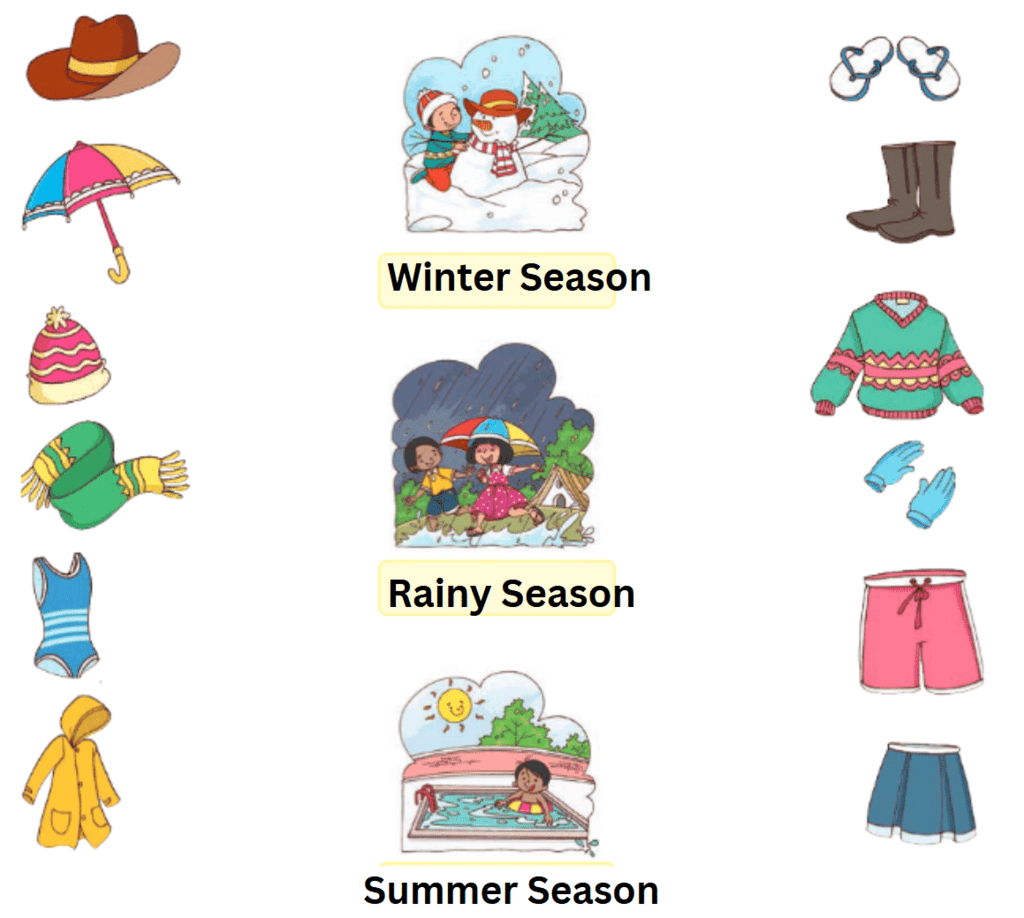
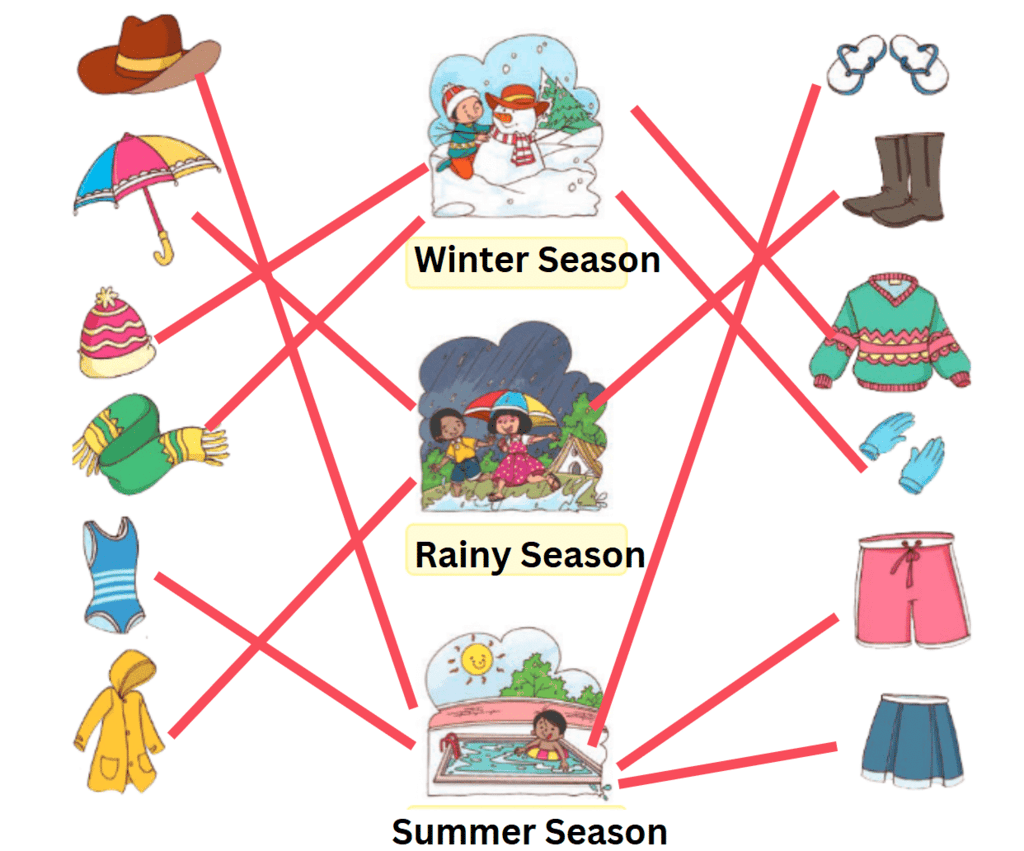
|
22 videos|186 docs|20 tests
|
FAQs on How do I Spend my Day? (Time) Class 1 Notes Maths
| 1. What are the different times of the day and their activities? |  |
| 2. How can time affect the duration of activities? |  |
| 3. What is the significance of a clock in understanding time? |  |
| 4. How do different seasons affect our daily activities? |  |
| 5. Why is it important to learn about time management at a young age? |  |















